2023 Annual Meeting
speakers and panelists
Keynote speaker

Amory B. Lovins
Adjunct Professor of Civil and Environmental Engineering, Stanford University; Co-founder and Chairman Emeritus, RMI (Rocky Mountain Institute)
Physicist Amory Lovins is Cofounder (1982) and Chairman Emeritus of RMI (formerly Rocky Mountain Institute); author of 31 books and over 850 papers; a designer of superefficient buildings, vehicles, and industrial plants; and a half-century advisor to major firms and governments worldwide on advanced energy efficiency and strategy. He received the Blue Planet, Volvo, Zayed, Onassis, Nissan, Shingo, and Mitchell Prizes, MacArthur and Ashoka Fellowships, 12 honorary doctorates, the Heinz, Lindbergh, Right Livelihood, National Design, and World Technology Awards, and Germany’s Officer’s Cross of the Order of Merit (Bundesverdienstkreuz 1. Klasse). A Harvard and Oxford dropout, former Oxford don, honorary US architect, Swedish engineering academician, and 2011–18 member of the US National Petroleum Council, he has taught at ten universities and is currently an Adjunct Professor of Civil and Environmental Engineering at Stanford. In 2009, Time named him one of the world’s 100 most influential people, and Foreign Policy, one of the 100 top global thinkers.
Speakers and Panelists
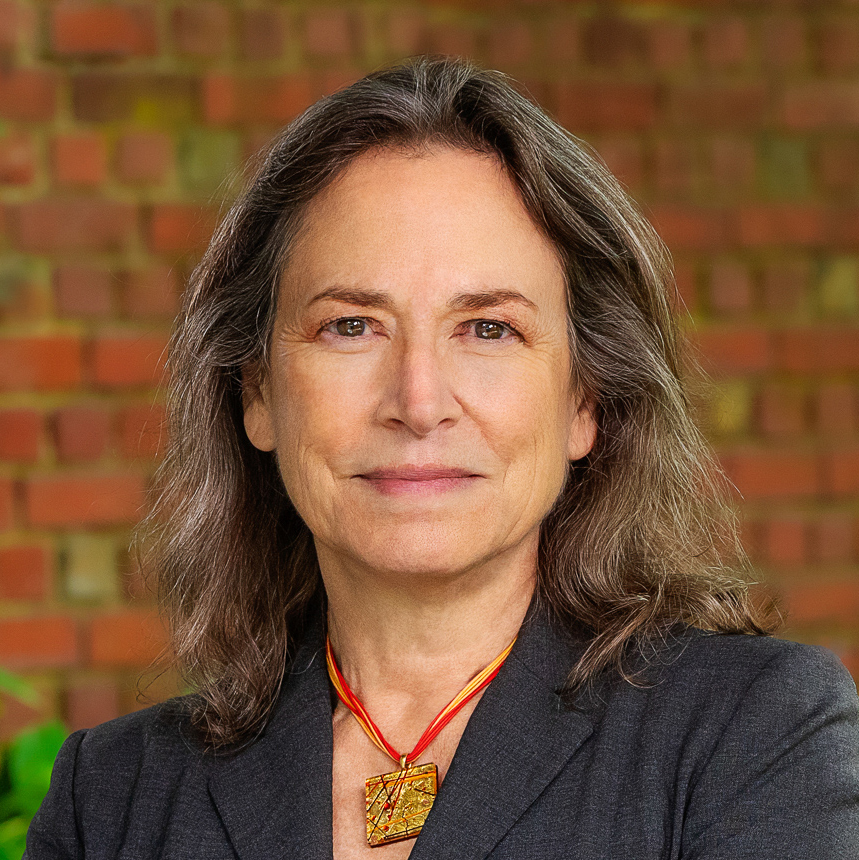
Emily A. Carter
Senior Strategic Advisor and Associate Lab Director for Applied Materials and Sustainability Sciences at the Princeton Plasma Physics Laboratory, Gerhard R. Andlinger Professor in Energy and the Environment and Professor of Mechanical and Aerospace Engineering, the Andlinger Center for Energy and the Environment, and Applied and Computational Mathematics, Princeton University
Carter is the Gerhard R. Andlinger Professor in Energy and the Environment at Princeton University and Senior Strategic Advisor and Associate Laboratory Director at the Department of Energy’s Princeton Plasma Physics Laboratory (PPPL). She was the Founding Director of the Andlinger Center for Energy and the Environment, and then Dean of Engineering and Applied Science at Princeton. Thereafter, she served as UCLA’s Executive Vice Chancellor and Provost, and Distinguished Professor of Chemical and Biomolecular Engineering before returning to Princeton and PPPL. The author of over 450 publications and patents, she has delivered nearly 600 invited/plenary lectures worldwide and serves on advisory boards spanning a wide range of disciplines. She is the recipient of numerous honors, including election to the U.S. National Academy of Sciences, the American Academy of Arts and Sciences, U.S. National Academy of Inventors, the U.S. National Academy of Engineering, and the European Academy of Sciences.

Steven Cowley
Director, Princeton Plasma Physics Laboratory (PPPL); Professor of Astrophysical Sciences, Princeton University
Cowley, a theoretical physicist and international authority on fusion energy, became the seventh director of the Princeton Plasma Physics Laboratory in 2018, and a Princeton professor of astrophysical sciences. Most recently president of Corpus Christi College and professor of physics at the University of Oxford in the United Kingdom since 2016, Cowley previously was chief executive officer of the United Kingdom Atomic Energy Authority (UKAEA) and head of the Culham Centre for Fusion Energy.

Thomas Darrah
Chief Technology Officer, Koloma; Professor, School of Earth Sciences, The Ohio State University
Darrah obtained a Ph.D. in geology from the University of Rochester and has nearly 20 years of experience specializing in gas geochemistry and subsurface geoscience. Darrah is an internationally recognized scholar who has made significant contributions to the geological sciences through research funded by the National Science Foundation, the U.S. Department of Energy, and others, as well as industry. He is a professor in the School of Earth Sciences and director of the Global Water Institute at The Ohio State University. He is a co-founder and chief technical officer of Koloma, where he is responsible for overseeing natural hydrogen exploration and intellectual property and technology development.
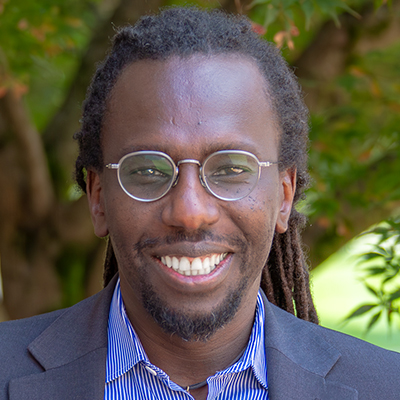
Ahmed Diallo
Program Director, ARPA-E; Distinguished Research Fellow, Princeton Plasma Physics Laboratory (PPPL)
Diallo serves as the program director at ARPA-E, advancing commercial fusion energy through pioneering research. He is also the principal research physicist at Princeton Plasma Physics Laboratory (PPPL), where he spearheaded the Advanced Diagnostics Development Division. At PPPL, Diallo developed advanced diagnostic methods for microelectronics and fusion plasma studies. He also served as the deputy director for the Innovation Network for Fusion Energy (INFUSE), where he planned, directed, and evaluated research activities in partnership with national labs, universities. His notable awards encompass the U.S. Department of Energy’s Early Career Research Award, DOE Oppenheimer Fellow, and the PPPL Distinguished Research Fellow title. Prior to his PPPL tenure, Diallo was a research fellow at the Australian National University and a postdoctoral scientist at the Swiss Plasma Center, Swiss Federal Technical Institute. He proudly holds a Ph.D. in physics from the University of Iowa.
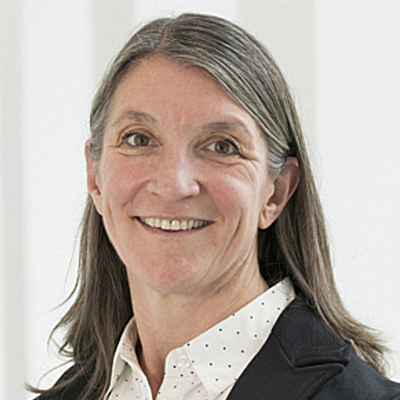
Sarah Gasda
Research Director, Computational Geosciences and Modeling, NORCE Energy; Professor, Department of Physics and Technology, University of Bergen
Gasda is research director and chief scientist in computational geosciences at NORCE, an independent research institute in Bergen, Norway. She currently leads the Centre for Sustainable Subsurface Resources (CSSR), a national research center dedicated to providing new subsurface knowledge and digital solutions to reduce Norway’s offshore emissions drastically. Over a 20-year research career, she has applied her expertise in modeling and simulation of multiphase flow in porous media to solve engineering challenges in geological carbon storage and underground hydrogen storage. She is an internationally recognized expert in CO2 storage technology with contributions to understanding long-term migration and containment, leakage risk, gigatonne-scale storage assessment, and storage in depleted petroleum reservoirs. Her research team at NORCE specializes in open-source reservoir simulation that brings state-of-the-art methods into commercial-ready software. Gasda holds a Ph.D. in civil and environmental engineering from Princeton University in 2008.

David A. Gates
Chief Technology Officer, Thea Energy
Gates, the chief technology officer at Thea Energy, was until recently the head of the Advanced Projects Department and the stellarator physics leader at PPPL. He also held a joint appointment as a senior research scholar at the Andlinger Center for Energy and the Environment. Gates previously led collaborative efforts with the Wendelstein 7-X stellarator in Greifswald, Germany and also on the Large Helical Device in Toki, Japan. He served as the principal investigator of the ARPA-E project “Stellar Simplification using Permanent Magnets”. Prior to taking the role as stellarator leader, he was the leader of the NSTX Advanced Scenarios and Control topical science group as well as head of the Magneto-Hydrodynamic (“MHD”) Stability group. He also was a physics operator on NSTX. Gates did his undergraduate studies in physics and mathematics at the University of Wisconsin-Madison and did his graduate studies at Columbia University where he received his M.S., M. Phil., and Ph.D. in applied physics. He was a research associate at Culham Laboratory in Oxfordshire, England from 1993-1997 where he worked on the COMPASS-D and START devices. Gates was a visiting professor at the National Institute for Fusion Science in Toki, Japan in 2010 and 2011. He became a fellow of the American Physical Society in 2013.
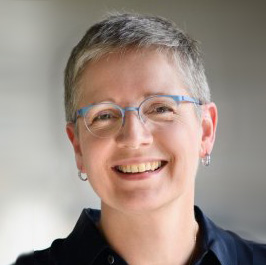
Claire F. Gmachl
Interim Director, Andlinger Center for Energy and the Environment; Eugene Higgins Professor of Electrical Engineering; Head of Whitman College, Princeton University
Gmachl is interim director of the Andlinger Center for Energy and the Environment, the Eugene Higgins Professor of Electrical Engineering, and head of Whitman College at Princeton University. Her research group works on the development of new quantum devices, especially lasers, and their optimization for systems applications ranging from sensors to optical communications. Gmachl received her Ph.D. in 1995 from the Technical University of Vienna (Austria). For seven years at Bell Labs, she worked on quantum cascade lasers. She joined Princeton University in 2003. In 2005, she received a MacArthur Foundation fellowship.
From 2006 to 2016, Gmachl directed the Engineering Research Center for Mid-Infrared Technologies for Health and the Environment (MIRTHE), headquartered at Princeton. MIRTHE is a National Science Foundation Engineering Research Center with partners including the City College New York, Johns Hopkins University, Rice University, Texas A&M, and the University of Maryland-Baltimore County. The center encompasses a world-class team of engineers, chemists, physicists, environmental and bioengineers, and medical doctors. MIRTHE developed infrared optical trace gas sensing systems based on new technologies, such as quantum cascade lasers or quartz-enhanced photo-acoustic spectroscopy, with the ability to detect minute amounts of chemicals found in the environment or atmosphere, emitted from spills, combustion, or natural sources, or exhaled in human breath.
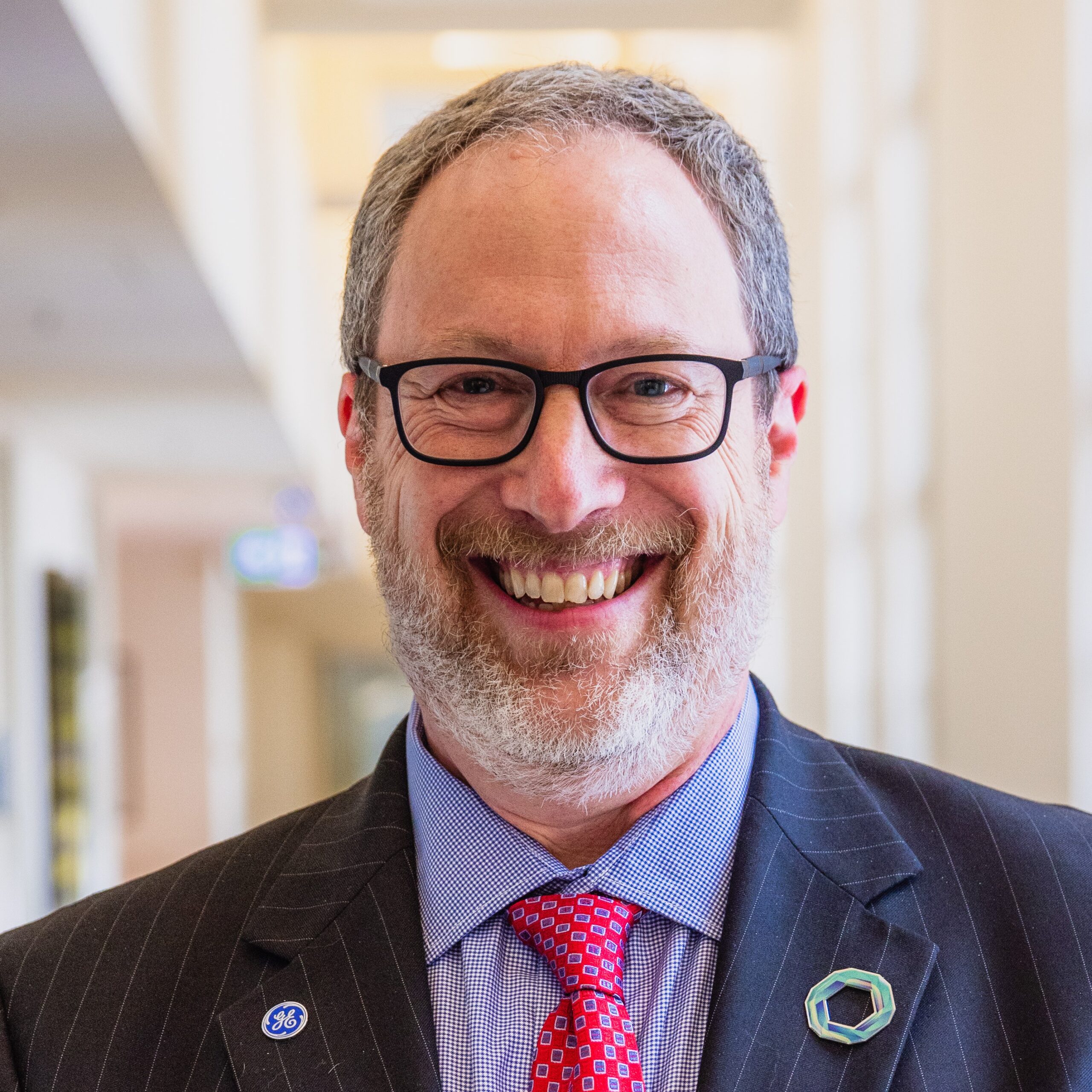
Jeffrey Goldmeer
Global Hydrogen Value Chain Leader & Emergent Technologies Director, GE Vernova’s Power Business
Goldmeer is responsible for developing a unified strategy for low-carbon intensity hydrogen and hydrogen derivatives. He is also co-creator and co-host of GE’s award-winning decarbonization podcast, Cutting Carbon, which has 116,000 downloads and listeners in 155 countries. Goldmeer has more than 22 years of industrial experience on a wide variety of fuels, gas turbine combustion systems, and the power industry. This includes first-of-a-kind operation of hydrogen and natural gas blends on multiple commercially operating gas turbines. He is also leading a team evaluating the use of ammonia as a gas turbine fuel. Goldmeer holds a Ph.D. in mechanical engineering from Case Western Reserve University. Prior to joining GE, Goldmeer was a senior research scientist at Southwest Sciences and was a National Research Council (post-doctoral) research associate at the NASA Glenn Research Center. He holds 13 patents on a variety of combustion and propulsion related technologies.
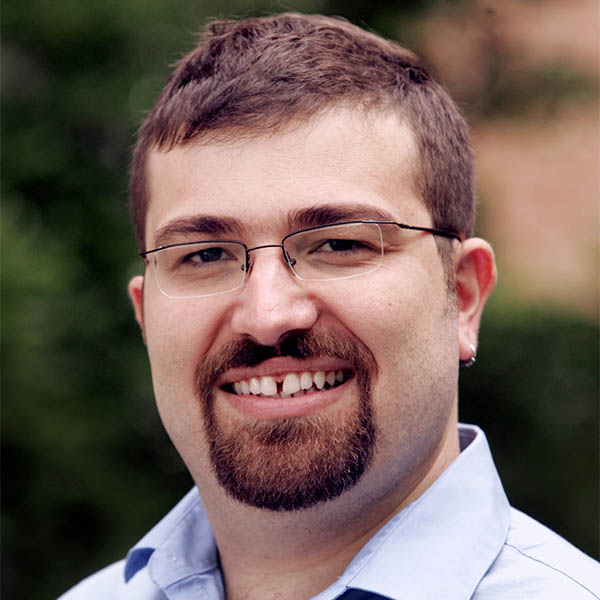
Egemen Kolemen
Associate Professor of Mechanical and Aerospace Engineering and the Andlinger Center for Energy and the Environment, Princeton University; Staff Research Physicist, Princeton Plasma Physics Laboratory (PPPL)
Kolemen’s research focuses on the application of dynamics and control theory to experimental plasma physics, primarily to address the challenges of fusion reactor design. He analyzes the dynamics of complex plasma phenomena using applied mathematics and control theory with the aim of designing and implementing novel control techniques, which are then used to build real-time control systems from the ground up. Current research includes reduction of the heat flux to the fusion reactor vessel using advanced magnetic divertor configuration, detachment, and radiation control; and disruption avoidance against instabilities such as neoclassical tearing modes and resistive wall modes.
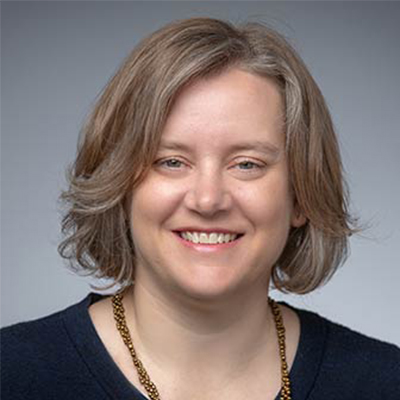
Jennifer Kurtz
Director, Energy Conversion and Storage Systems Center and Technical Lead, Advanced Research on Integrated Energy Systems (ARIES), National Renewable Energy Laboratory (NREL)
Kurtz leads NREL’s Energy Conversion and Storage Systems Center, which spans innovative, interdisciplinary, and integrated research and development for technology advancements in electrochemical, molecular, thermal, and mechanical systems. The center’s research focus is clean, high-performance, cost-effective, safe, diverse, and integrated solutions that improve energy system flexibility and balance to maximize renewable energy generation, storage, and conversion with advanced controls and optimization. Kurtz is part of the leadership team for NREL’s ARIES: Advanced Research on Integrated Energy Systems. Previously, she managed the hydrogen and fuel cell systems engineering group in NREL’s Center for Integrated Mobility Sciences, and was a principle research engineer for the National Fuel Cell Technology Evaluation Center. Prior to joining NREL in 2007, Kurtz worked at UTC Power, primarily in fuel cell system design.

Erika La Plante
Assistant Professor of Materials Science and Engineering, University of California, Davis; Co-founder and Head of MRV and Environmental Impact Assessment, Equatic
La Plante is a co-founder and head of MRV (Measurement, Reporting, and Verification) and Environmental Impact Assessment at Equatic, an ocean carbon removal company that accelerates and amplifies the ocean’s natural ability to absorb and permanently store atmospheric carbon. Her research at UCLA, where she was a postdoctoral researcher, project scientist, and lecturer, formed the basis of Equatic technology and helped the organization offer reliable, cost-effective, and scalable ocean carbon removal. La Plante is also an assistant professor of materials science and engineering at the University of California, Davis. She has a B.S. in geology and a Ph.D. in geochemistry from the University of Illinois at Chicago. She has produced multiple peer-reviewed publications on mineral reactivity and processing, cementitious materials, and carbon dioxide sequestration, and applies her expertise in the kinetics of low-temperature aqueous processes at mineral-fluid interfaces to address the many research questions in the fields of climate, sustainability, built environment, and energy.

Noah McQueen
Co-founder and Head of Research, Heirloom
McQueen is the head of research at Heirloom, a direct air capture company with the goal of removing one billion tons of carbon dioxide from the atmosphere by 2035. McQueen’s expertise surrounds carbon capture and removal, with a focus on direct air capture and carbon mineralization technologies. Their expertise further includes techno-economic analysis and life cycle assessment to evaluate the technical and economic feasibility of carbon removal systems. McQueen holds a Ph.D. in chemical engineering from the University of Pennsylvania and a B.S. in chemical engineering from the Colorado School of Mines.

Michael Mueller
Professor of Mechanical and Aerospace Engineering, Princeton University
Mueller’s research interests encompass computational modeling of multi-physics turbulent reacting flows with applications to energy and propulsion, including combustion as well as offshore wind, fusion, and other energy conversion processes. In addition, his research extends to broader areas of computational and data sciences including uncertainty quantification, numerical algorithms for emerging parallel computing architectures, and data-based modeling and algorithms. Since 2020, he is jointly appointed as a faculty researcher at the National Renewable Energy Laboratory. He has been recognized through the Young Investigator Program of the Army Research Office (2017) and with a Research Excellence Award from The Combustion Institute (2020). He has also received the Princeton University Graduate Mentoring Award (2015) and been named to the Princeton Engineering Commendation List for Outstanding Teaching seven times between 2013 and 2020.
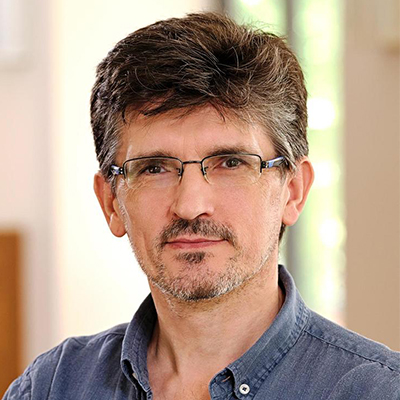
Amilcare Porporato
Thomas J. Wu ’94 Professor of Civil and Environmental Engineering and the High Meadows Environmental Institute, Princeton University
Porporato’s research and teaching regard nonlinear and stochastic dynamical systems, hydrometeorology, ecohydrology, and environmental thermodynamics, with applications to sustainable use of soil and water resources, natural climate solutions, and sustainable energy transition. Porporato has been the editor of Water Resources Research and Hydrological Processes and is a member of the editorial board of Entropy, Advances in Water Resources, and the Hydrologic Science Journal. Porporato is the author of more than 300 peer-reviewed papers, several publications presented at national and international conferences, and invited talks. He is a co-author of the books Ecohydrology of Water-controlled Ecosystems (Cambridge UP, 2004) and Ecohydrology: Dynamics of Life and Water in the Critical Zone (Cambridge UP, 2022), and he is the editor of Dryland Ecohydrology (Springer, 2005). Porporato received the Parisatti International prize, the first Landolt & Cie Visiting Chair in Innovative Strategies for a Sustainable Future at EPFL, the Outstanding Civil Engineering Faculty Award, Borland lecture at the Hydrology Days, the AGU Hydrology award, and the Dalton Medal (EGU). He is an elected fellow of AGU and a WOS highly cited researcher.
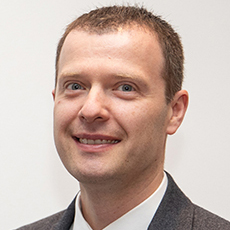
Barry Rand
Associate Director for External Partnerships, Andlinger Center for Energy and the Environment; Professor of Electrical and Computer Engineering and the Andlinger Center for Energy and the Environment, Princeton University
Rand’s research interests highlight the border between electrical engineering, materials science, chemistry, and applied physics, covering electronic and optoelectronic thin-films and devices. He has authored approximately 160 refereed journal publications and holds 25 issued U.S. patents. He has received several awards and accolades, including the 3M Nontenured Faculty Award (2014), DuPont Young Professor Award (2015), DARPA Young Faculty Award (2015), and ONR Young Investigator Program Award (2016). Rand earned a B.E. in electrical engineering from The Cooper Union in 2001 and received M.A. and Ph.D. degrees in electrical engineering from Princeton University. From 2007 to 2013, he was at imec in Leuven, Belgium, ultimately as a principal scientist, researching the understanding, optimization, and manufacturability of thin-film solar cells. He joined the Princeton University faculty in 2013.

